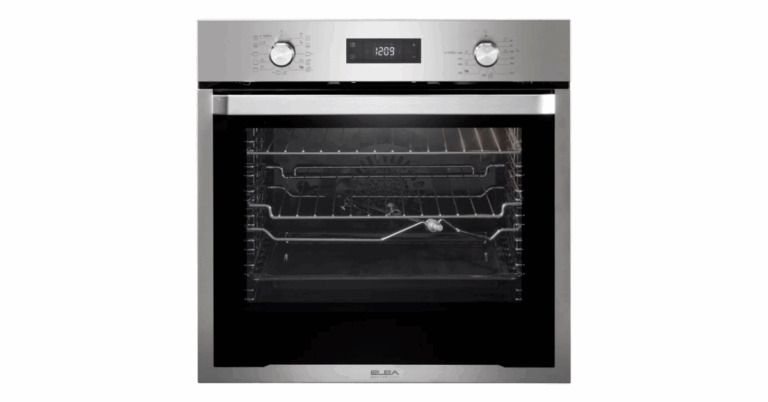Commercial Real Estate CRM: Transforming Property Management and Sales
In the fast-paced world of commercial real estate, managing relationships, leads, and properties efficiently is critical to success. This is where a Commercial Real Estate CRM (Customer Relationship Management) system becomes invaluable. Designed specifically for the unique demands of commercial property professionals, a Commercial Real Estate CRM streamlines workflows, improves client engagement, and drives sales growth.
If you are involved in commercial real estate, understanding the benefits and functionalities of a Commercial Real Estate CRM can significantly enhance your business operations. This article will dive deep into what a Commercial Real Estate CRM is, why it matters, how to choose the right system, and answer some frequently asked questions.
What is a Commercial Real Estate CRM?
A Commercial Real Estate CRM is specialized software tailored to the needs of commercial property brokers, agents, landlords, and investors. Unlike generic CRMs, this system focuses on managing commercial property listings, tenant relationships, lease agreements, sales pipelines, and marketing efforts—all within one integrated platform.
By consolidating data on properties, clients, and transactions, a Commercial Real Estate CRM helps real estate professionals stay organized, automate routine tasks, and deliver personalized service to prospective buyers and tenants.
Why Use a Commercial Real Estate CRM?
The benefits of adopting a Commercial Real Estate CRM extend across various aspects of property management and sales:
1. Centralized Data Management
Commercial real estate involves multiple parties—owners, tenants, brokers, investors—and a plethora of property details. A Commercial Real Estate CRM centralizes all this information, making it easily accessible to your team and reducing errors or missed opportunities.
2. Enhanced Client Relationship Tracking
Managing relationships is crucial in commercial real estate. A Commercial Real Estate CRM tracks communications, schedules follow-ups, and keeps detailed records of client preferences and history, allowing agents to build stronger, long-term relationships.
3. Streamlined Deal Pipeline
Keeping track of leads, offers, negotiations, and closings can be complicated. Commercial Real Estate CRM systems offer pipeline management features that provide clear visibility of every deal’s status, helping teams prioritize efforts and close deals faster.
4. Automated Marketing Campaigns
A Commercial Real Estate CRM can automate email campaigns, market listings to targeted audiences, and track engagement metrics. This automation saves time and improves marketing effectiveness by delivering the right message to the right prospects.
5. Reporting and Analytics
Understanding your business performance is easier with a Commercial Real Estate CRM’s reporting tools. From lead conversion rates to property performance, you can generate insights that inform smarter business decisions and strategy adjustments.
Key Features to Look for in a Commercial Real Estate CRM
When choosing a Commercial Real Estate CRM, several critical features ensure the software meets your industry-specific needs:
Property Management Tools
The CRM should allow you to upload and manage detailed property information, including size, location, zoning, lease terms, and photos. Advanced options may include mapping integrations and document storage.
Contact and Lead Management
Effective contact management features let you track potential clients, investors, and tenants, segment them by criteria, and prioritize follow-ups. Lead scoring and assignment capabilities can enhance your sales workflow.
Deal and Lease Tracking
A dedicated pipeline for tracking deals and leases helps monitor progress and deadlines. Alerts for lease renewals, rent escalations, or contract expirations can prevent costly oversights.
Integration with Other Systems
Your Commercial Real Estate CRM should integrate smoothly with other software such as accounting platforms, email marketing tools, and property listing websites to create a seamless operational ecosystem.
Mobile Accessibility
With agents often on the go, mobile access to the Commercial Real Estate CRM is essential. This ensures your team can update records, communicate with clients, and access data anytime, anywhere.
How a Commercial Real Estate CRM Enhances Business Growth
Adopting a Commercial Real Estate CRM does more than just organize data—it actively drives growth by improving efficiency and customer satisfaction:
-
Improved Response Times: Automated alerts and follow-up reminders mean no lead or client inquiry goes unanswered, increasing conversion rates.
-
Better Collaboration: Teams can share information and coordinate efforts easily within the CRM, reducing duplication and miscommunication.
-
Targeted Marketing: Data-driven marketing campaigns ensure you reach prospects who are most likely to convert, optimizing your marketing spend.
-
Informed Decision Making: Analytics and reports help identify trends, spot opportunities, and allocate resources effectively.
-
Scalability: As your commercial real estate portfolio grows, a CRM system scales with your business without the need for constant manual adjustments.
Frequently Asked Questions About Commercial Real Estate CRM
What industries benefit most from Commercial Real Estate CRM software?
Primarily commercial brokers, property managers, real estate investors, leasing agents, and asset managers find the Commercial Real Estate CRM invaluable. Any business involved in commercial property transactions or management can benefit.
How does a Commercial Real Estate CRM differ from a regular CRM?
A Commercial Real Estate CRM is designed with specialized tools for property data management, lease tracking, and deal pipelines unique to commercial real estate. Generic CRMs lack these industry-specific functionalities.
Is a Commercial Real Estate CRM suitable for small businesses?
Yes. Many Commercial Real Estate CRM providers offer scalable solutions tailored for businesses of all sizes, including solo brokers and small agencies.
How secure is data in a Commercial Real Estate CRM?
Top-tier Commercial Real Estate CRM providers employ robust security measures such as encryption, regular backups, and compliance with data privacy regulations to ensure your data is protected.
Can a Commercial Real Estate CRM integrate with MLS or property listing services?
Many Commercial Real Estate CRM systems offer integrations with MLS platforms and commercial property listing sites, enabling automatic syncing of listings and leads.
What is the typical cost of a Commercial Real Estate CRM?
Pricing varies based on features, user count, and service levels. Some providers charge monthly subscriptions starting as low as $30 per user, while enterprise solutions may cost more. Evaluate features against your business needs for the best ROI.
How difficult is it to implement a Commercial Real Estate CRM?
Implementation varies by platform but most providers offer onboarding support, training, and customization services. Cloud-based CRMs typically allow quick deployment without extensive IT involvement.
Conclusion
A Commercial Real Estate CRM is a powerful tool that can revolutionize how you manage properties, clients, and sales pipelines. By centralizing data, automating processes, and providing actionable insights, the right Commercial Real Estate CRM drives productivity, enhances client relationships, and accelerates business growth.






